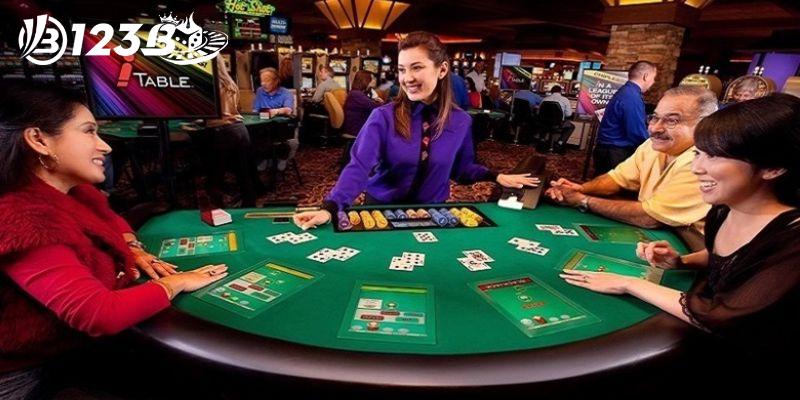Product description
Card games are a type of game that involves playing with a deck of cards. These games can range from simple matching or drawing games to complex strategic and competitive games. Card games have been a popular form of entertainment and social interaction for centuries, with a rich history and diverse cultural traditions.
The Evolution of Card Games
The Origin of Playing Cards
Playing cards are believed to have originated in ancient China, where they were used for gambling and divination purposes. The earliest known playing cards date back to the 9th century AD. These early cards were typically made of paper or bamboo and featured simple suits and symbols.
The Spread of Card Games
As trade and cultural exchange increased, playing cards spread to other parts of the world, including Europe, the Middle East, and India. Each region developed its own unique styles and traditions of card games, resulting in a diverse and vibrant global gaming culture.
The Influence of Technology
The invention of the printing press in the 15th century allowed for the mass production of playing cards, making them more accessible to the general public. In the modern era, digital technology has had a significant impact on card games, with the development of online and mobile gaming platforms.
See more: https://123bokvip.com/
The Mechanics of Card Games
Card Deck Composition
The standard deck of playing cards consists of 52 cards, divided into four suits (hearts, diamonds, clubs, and spades) with 13 cards in each suit. Some games may also use additional cards, such as jokers, or use specialized decks with different numbers or types of cards.
Card Distribution and Drawing
In most card games, players are dealt a certain number of cards, either from a draw pile or by drawing from the top of the deck. The remaining cards are often used as a draw pile or "stock" from which players can draw additional cards during the game.
Card Gameplay and Scoring
The objective of a card game can vary widely, from matching pairs or sequences to capturing opponent's cards or building specific combinations. The rules of gameplay and scoring systems are unique to each individual game, often involving a mix of luck, strategy, and skill.
The Social Aspect of Card Games
Gathering and Socializing
Card games have long been a popular way for people to gather, socialize, and interact with one another. These games can be played in a variety of settings, from formal tournaments to casual gatherings with friends and family.
Competitive and Cooperative Play
Some card games are inherently competitive, with players vying to outmaneuver and defeat their opponents. Other games foster cooperative play, where players work together to achieve a common goal or overcome challenges.
Cultural Traditions and Variations
Card games have been deeply ingrained in various cultures around the world, with each region often developing its own unique variations and traditions. These cultural differences have contributed to the rich tapestry of card game diversity.
The Accessibility of Card Games
Availability and Affordability
Playing cards are widely available and relatively inexpensive, making them accessible to people of all economic backgrounds. This has contributed to the widespread popularity and accessibility of card games.
Ease of Learning and Teaching
Many card games are relatively simple to learn, with straightforward rules and gameplay mechanics. This allows people of all ages and skill levels to participate and enjoy these games.
Adaptability and Portability
Card games can be easily adapted to different settings and group sizes, making them a versatile form of entertainment. The compact nature of playing cards also makes them highly portable, allowing people to enjoy these games in a variety of locations.
The Therapeutic Benefits of Card Games
Cognitive Stimulation
Playing card games can provide cognitive stimulation, as they often involve problem-solving, strategic thinking, and memory skills. This can be particularly beneficial for individuals, such as the elderly, who may be seeking mental stimulation and cognitive engagement.
Emotional and Social Benefits
Card games can foster social interaction, emotional regulation, and interpersonal skills. Participating in these games can provide a sense of camaraderie, reduce stress, and promote positive social connections.
Therapeutic Applications
In recent years, card games have been explored for their potential therapeutic applications, such as in the treatment of mental health conditions, cognitive impairments, and social disorders. Researchers and clinicians are investigating the ways in which card games can be utilized as interventions or complementary therapies.
FAQs
What are the most popular card games?
Some of the most popular and widely played card games include:
- Poker
- Blackjack
- Solitaire
- Bridge
- Rummy
- Go Fish
- Uno
- Crazy Eights
- Gin Rummy
- Hearts
What are the basic components of a card game?
The basic components of a card game typically include:
- A standard deck of 52 playing cards (sometimes with jokers)
- Players who are dealt a certain number of cards
- A set of rules that govern the gameplay, including the objective, card distribution, and scoring
- A draw pile or stock of cards that players can draw from during the game
- Gameplay mechanics, such as matching, capturing, or building specific card combinations
How do card games differ in terms of complexity and strategy?
Card games can vary greatly in terms of complexity and the level of strategy involved. Some games, such as Go Fish or Crazy Eights, are relatively simple and rely more on luck and chance. Other games, like Bridge or Poker, require a high level of strategic thinking, mathematical analysis, and decision-making skills.
What are the social benefits of playing card games?
Playing card games can provide a variety of social benefits, including:
- Fostering social interaction and bonding
- Encouraging communication and collaboration
- Developing interpersonal skills and emotional intelligence
- Providing a shared activity and common ground for people to connect
- Reducing stress and promoting relaxation
Can card games be used for therapeutic purposes?
Yes, card games can be used for therapeutic purposes in various contexts, such as:
- Cognitive stimulation and rehabilitation for individuals with cognitive impairments or neurological conditions
- Emotional regulation and stress management for individuals dealing with mental health challenges
- Social skills development and interpersonal communication for individuals with social disorders or autism spectrum disorders
- Promoting overall well-being and enhancing quality of life for older adults or individuals in long-term care facilities
Conclusion
Card games have a rich history and continue to be a popular form of entertainment and social interaction worldwide. From their origins in ancient China to their modern-day adaptations, these games have evolved to cater to a wide range of preferences and skill levels. Card games offer a unique blend of luck, strategy, and social engagement, making them a versatile and accessible form of recreation. As technology continues to shape the gaming landscape, the future of card games remains both exciting and promising, with the potential for further innovation and integration into various therapeutic and educational contexts.
POSTER SEO_TELEGRAM










